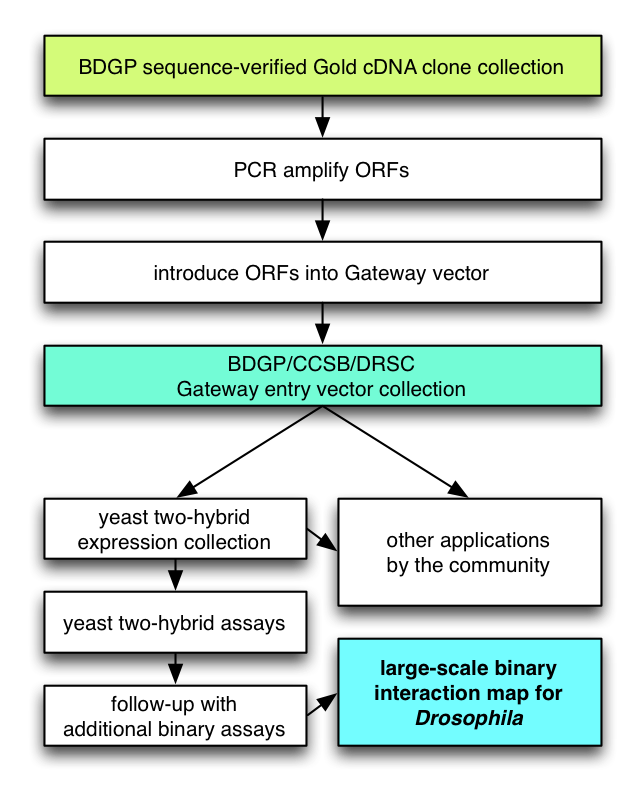About
Drosophila melanogaster genome is arguably the best-annotated multi-cellular eukaryotic genome and yet, there remains much to be learned about the functions of Drosophila proteins. Moreover, an ultimate goal of biology is not just to understand individual protein activities but also to develop quantitative models that can describe biological systems on a global scale—i.e. to gain a system-scale understanding. This requires large-scale application of approaches in the areas of functional genomics, transcriptomics and proteomics.
Mass spectrometry-based and other studies are helping to uncover what proteins are expressed and what protein complexes are present in Drosophila. Binary data are required to distinguish direct from indirect relationships, providing important refinement to our understanding of protein-protein interaction networks.
The goal of the “FlyBi” project (for Drosophila binary protein interaction project) is to perform a state-of-the-art, high-throughput, quality-controlled binary protein interaction analysis with ~10,000 Drosophila open reading frames (ORFs), representing about 2/3 of the proteome, to generate a high-confidence binary interaction network.
To limit false discovery, prior to screening we will use positive and random reference sets of interactions to establish optimal vectors and parameters for the large-scale screen. We will further limit false discovery by performing multiple iterations of the screen. Integration of the results of this robust binary interaction analysis with other datasets will generate a high-confidence “interactome” and help guide choices for further molecular genetic investigations.
Funding
This project, funded by NIH-NHGRI (5R01HG007118; N. Perrimon, PI), is a collaboration among the Berkeley Drosophila Genome Project (BDGP)/Celniker lab, Center for Cancer Systems Biology (CCSB)/Vidal lab and Drosophila RNAi Screening Center (DRSC)/Perrimon lab.
- Berkeley Drosophila Genome Project at LBL
- Center for Cancer Systems Biology at DFCI
- Drosophila RNAi Screening Center at HMS
Clone access
Approximately 10,000 Drosophila Gateway ORF clones are now available to the community at the following plasmid repositories: Please contact the repositories directly for more information about accessing the full collection or individual clones.Data access
View Data View ClonesAdditional Resources
Steps
